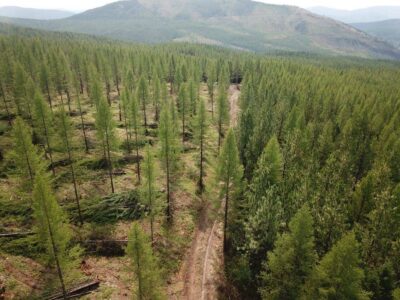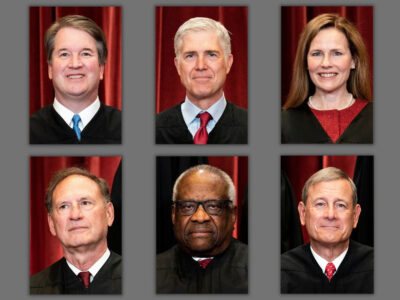Supreme Court Grants Review in Clean Water Act/Wetlands Case
2012 is shaping up as a busy year for environmental law at the U.S. Supreme Court.
Today, as the Court recessed for the summer, the justices granted certiorari in a second environmental case that it will hear and decide in its 2011-12 Term: Sackett v. U.S. Environmental Protection Agency, No. 10-1062. Sackett involves a development dispute between an Idaho couple and EPA enforcement officials that arose under the federal Clean Water Act (CWA).
The Sacketts filled in a portion of their lot near Priest Lake, Idaho, in preparation for building a house on the property. EPA issued an administrative compliance order against the Sacketts, alleging that the parcel is a wetland subject to the CWA, and that the Sacketts violated the Act by filling their property without first obtaining a permit under CWA section 404. EPA’s compliance order directed the Sacketts to restore the property to its original condition, or else be subject to monetary penalties under the Act.
The Sacketts unsuccessful sought an administrative hearing before EPA to challenge the agency’s finding that their property is a wetland subject to CWA permitting requirements. They then sued in federal court, claiming that EPA’s issuance of the compliance order was both subject to judicial review and factually erroneous; the absence of such review, argued the Sacketts, violates the Administrative Procedure Act as well as their constitutional right to due process.
Both the district court and Ninth Circuit Court of Appeals rejected their arguments and ruled in favor of EPA, concluding that the CWA precludes judicial review of such administrative compliance orders before EPA commences its own enforcement proceedings in federal court. (Several other federal circuit courts of appeals have reached the same conclusion.)
The Sacketts, represented by the Pacific Legal Foundation, successfully petitioned the Supreme Court for certiorari. In today’s order granting review, the justices indicated they would resolve two issues: 1) whether the Sacketts may seek pre-enforcement judicial review of the EPA compliance order under the APA; and 2) if not, whether the absence of such recourse to the courts violates their right to constitutional due process.
Sackett is a major case, one with implications for environmental enforcement that extend far beyond the CWA to many other federal environmental laws as well. And the potential consequences of a ruling in the Sacketts’ favor would also affect state environmental agencies, to whom the federal government has frequently delegated permitting and enforcement obligations under numerous federal environmental statutes.
Sackett joins another environmental case that the Supreme Court agreed to review just last week: PPL Montana v. State of Montana. (I recently discussed the PPL Montana case on this site.)
Reader Comments
6 Replies to “Supreme Court Grants Review in Clean Water Act/Wetlands Case”
Comments are closed.








The EPA has gotten into a bad habit of asserting jurisdiction over isolated wetlands that the Supreme Court and other federal courts have determined are non-jurisdictional, and then taking very punitive enforcement actions while at the same time effectively denying innocent landowners their rights to judicial review. Hopefully the Supreme Court will stop EPA from engaging in this brazen regulatory abuse.
The EPA is a jobs killer and a public enemy of ordinary citizens. The fact that the Court granted cert. for this case is a reassuring sign of justice.
bqrq> “The EPA is a jobs killer and a public enemy of ordinary citizens”
The last time I checked, the EPA is doing a fine job protecting the air I breathe and the water I drink/swim/have fun in. Oh wait, I am a student, I guess I am not an ordinary citizen. Carry on.